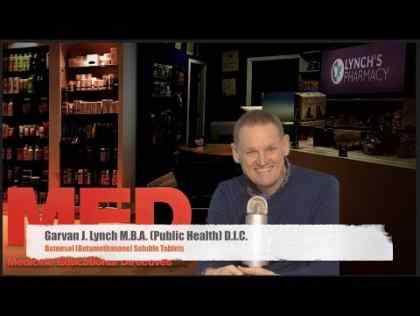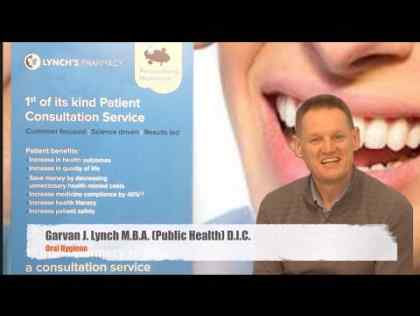
What is it?
- Canker sores, also called aphthous ulcers, are small, shallow lesions that develop on the soft tissues in your mouth and at the base of your gums. Unlike cold sores, canker sores don't occur on the surface of your lips and aren't contagious. They can be very painful, however, and can make eating and talking difficult.
- Most canker sores go away on their own in a week or two. Check with your doctor or dentist if you have unusually large or painful canker sores or canker sores that don't seem to heal.
Symptoms
There are several types of canker sores, including minor, major and herpetiform sores.
Minor canker sores
These most common canker sores:
- Are less than about 1/2 inch, or 12 millimeters (mm), in diameter
- Are oval shaped
- Heal without scarring in one to two weeks
Major canker sores
These less common sores:
- Are greater than about 1/2 inch, or 12 mm, in diameter
- Have irregular edges
- May take up to six weeks to heal and leave extensive scarring
Herpetiform canker sores
These canker sores, which usually develop later in life:
- Are each no bigger than about 1/8 inch, or 3 mm, in diameter
- Often occur in clusters of 10 to 100 sores
- Have irregular edges
- Heal without scarring in one to two weeks
Additional symptoms
Occasionally, you may experience other signs or symptoms along with the lesions, such as:
- Fever
- Listlessness
- Swollen lymph nodes
Causes
The precise cause of canker sores remains unclear, though researchers suspect that a combination of several factors contributes to outbreaks, even in a single individual. These factors include:
- A minor injury to your mouth from dental work, overzealous brushing, sports mishaps, spicy or acidic foods, or an accidental cheek bite
- Food sensitivities, particularly to chocolate, coffee, strawberries, eggs, nuts, cheese and highly acidic foods, such as pineapple
- Food allergies
- A diet lacking in vitamin B-12, zinc, folate (folic acid) or iron
- An allergic response to certain bacteria in your mouth
- Helicobacter pylori, the same bacteria that cause peptic ulcers
- Celiac disease, a serious intestinal disorder caused by a sensitivity to gluten, a protein found in most grains
- Inflammatory bowel diseases, such as Crohn's disease and ulcerative colitis
- Behcet's disease, a rare disorder that causes inflammation throughout the body, including the mouth
- A faulty immune system that attacks healthy cells in your mouth instead of pathogens, such as viruses and bacteria
- HIV/AIDS, which suppresses the immune system
- Hormonal shifts during menstruation
- Emotional stress
- Toothpastes and mouth rinses containing sodium lauryl sulfate
Unlike cold sores, canker sores are not associated with herpes virus infections.
Risk factors
Anyone can develop canker sores, but these factors make you more susceptible:
- Being female. Canker sores, especially clusters of small lesions, are more common in women.
- Having a family history. About one-third of people with recurrent canker sores have a family history of the disorder. This may be due to heredity or to a shared factor in the environment, such as certain foods or allergens.
Dignosis
Tests aren't needed to diagnose canker sores. Your doctor or dentist can identify them with a visual exam. In some cases, you may have tests to check for other health problems, especially if your canker sores are severe and ongoing.
Treatments and drugs
Treatment usually isn't necessary for minor canker sores, which tend to clear on their own in a week or two. But large, persistent or unusually painful lesions often need medical care. A number of treatment options exist, ranging from mouth rinses and topical ointments to systemic corticosteroids for the most-severe cases.
- Mouth rinses. If you have a number of canker sores, your doctor may prescribe a mouth rinse containing the steroid dexamethasone to reduce pain and inflammation. Oral suspensions of the antibiotic tetracycline also can reduce pain and cut healing time, but tetracycline has drawbacks. It can make you more susceptible to oral thrush, a fungal infection that causes painful mouth lesions, and it can permanently discolor children's teeth.
- Topical pastes. Over-the-counter and prescription pastes with active ingredients such as benzocaine (Orabase) can help relieve pain and speed healing if applied to individual lesions as soon as they appear.
- Oral medications. Medications not intended specifically for canker sore treatment, such as the heartburn drug cimetidine and colchicine, which is normally used to treat gout, may be helpful for canker sores. Oral steroid medications are sometimes prescribed when severe canker sores don't respond to other treatments. But because the side effects of steroids are serious, these are usually considered a treatment of last resort.
- Debacterol. This topical solution was specifically designed to treat canker sores and gum problems. By chemically cauterizing lesions, it reduces healing time to about a week.
- Nutritional supplements. Your doctor is likely to prescribe a nutritional supplement if you consume low amounts of important nutrients, such as folate (folic acid), vitamin B-6, vitamin B-12 and zinc.
- Other conditions. If your canker sores seem to be related to a more serious health problem, your doctor will treat the underlying condition.
Lifestyle remedies
To relieve pain and speed healing:
- Rinse your mouth. Use salt water; baking soda (dissolve 1 teaspoon of soda in 1/2 cup warm water); hydrogen peroxide diluted by half with water; or a mixture of 1 part diphenhydramine (Benadryl) to either 1 part bismuth subsalicylate (Kaopectate) or 1 part simethicone (Maalox). Be sure to spit out the mixtures after rinsing.
- Cover lesions with a paste made of baking soda.
- Try over-the-counter products that contain a numbing agent, such as Anbesol and Bonjela.
- Avoid abrasive, acidic or spicy foods that can cause further irritation and pain.
- Apply ice to your canker sores or allow ice chips to slowly dissolve over the sores.
- Brush your teeth gently, using a soft brush and toothpaste without foaming agents.
- Dab a small amount of milk of magnesia on your canker sore a few times a day. This can ease the pain and may help the sore heal more quickly.
Alternative medicine
There are a number of drug-free options for treating and preventing canker sores, including:
- Nutritional supplements, including zinc, folate and vitamin B
- A paste of alum, slippery elm powder or deglycyrrhizinated licorice (DGL), applied directly to the sores
- Stress-reduction techniques, such as yoga and meditation
Prevention
Canker sores often recur, but you may be able to reduce their frequency by addressing factors that seem to trigger them:
- Watch what you eat. Try to avoid foods that seem to irritate your mouth. These may include nuts, chips, pretzels, certain spices, salty foods and acidic fruits, such as pineapple, grapefruit and oranges. Be sure to avoid any foods to which you're sensitive or allergic.
- Choose healthy foods. To help prevent nutritional deficiencies, eat plenty of fruits, vegetables and whole grains. Regularly eating yogurt that contains acidophilus or other beneficial bacteria also may help ward off canker sores.
- Don't chew and talk at the same time. You could cause minor trauma to the delicate lining of your mouth.
- Follow good oral hygiene habits. Regular brushing after meals and flossing once a day can keep your mouth clean and free of foods that might trigger a sore. Use a soft brush to help prevent irritation to delicate mouth tissues, and avoid toothpastes and mouth rinses that contain sodium lauryl sulfate.
- Protect your mouth. If you have braces or other dental appliances, ask your dentist about orthodontic waxes to cover sharp edges.
References:
http://kidshealth.org/en/teens/canker.html
http://www.medicinenet.com/canker_sores/article.htm
http://www.emedicinehealth.com/canker_sores/article_em.htm
http://www.healthline.com/health/canker-sores
http://www.colgate.com/en/us/oc/oral-health/conditions/mouth-sores-and-infections/article/canker-sores-cold-sores-and-more
https://www.nlm.nih.gov/medlineplus/ency/article/000998.htm



